CMN 450
Participatory Media and Communication

1. Course Description
Students will investigate theoretical and technological facets of participatory culture. Internet users have the ability to take part in digital conversations on topics ranging from entertainment to politics. Skills in the composition of text, image, and audio are developed through the production of digital media. These compositional and technical skills will develop strategies that move consumers of media to become media producers participating in digital dialogues. Students will also explore ethical aspects of participatory culture.
Last Revised
Prerequisites
CMN 100 or CMN 114 or CMN 124 or CMN 200 or CMN 201 or CMN 207 or CMN 279 or CMN 300 or CMN 373
Delivery
Lecture: 2 hours, Lab: 1 hour
2. Course Objectives & Learning Outcomes
- Design, compose, and execute participatory communication
- Develop a critical understanding of participatory culture applied to both the production and reception of digital media
- Develop an understanding of what moves individuals from consumers of digital media to producers of, and participants in, digital dialogues
3. Topics Covered
- Participatory culture and identity
- Crowd sourcing and cognitive surplus
- The ethics of participation
- Cultural, political and social movements
- Composition and participation
- Introduction to digital rhetoric
- Linguistic and visual tropes
- Narrative theory
- Audience engagement
- Technical production of audio and video for participation
- Basic video and audio production
- Developing a web-presence
- Developing the means of participation
- Gamification in social media
- Analytics
4. Teaching Method
Workshops
In this workshop course, students have the opportunity to prepare assignments in class with the guidance and supervision of the instructor.
Graded Assignments
Students will prepare at least one oral presentation and three participatory media assignments which may include written assignments, videos, podcasts, infographics, and blogs. Additional in-class work may be assigned. The weighting of each assignment will be announced by the instructor.
5. Course Materials
Course readings
Topicality and flexibility will be achieved by use of supplementary journal articles, web texts, and other material. The material will be made available in electronic form.
Additional required materials
Students must provide personal headphones.
6. Policy
6.1 University Policies
Students are required to adhere to all applicable university policies found in their Online course shell in D2L and the Course Outline Policies.
6.2 Print and Digital Copying Guidelines:
Toronto Metropolitan University complies with Canada’s Copyright Act which protects both creators/owners and users of copyrighted materials. Students should familiarize themselves with TMU Copyright policies and procedures, and contact the Copyright and Scholarly Engagement Librarian at copyrt@torontomu.ca for questions, concerns and clarification of the copyright rules.
6.3 Turnitin.com
Turnitin.com is a plagiarism prevention and detection service to which Toronto Metropolitan University subscribes. It is a tool that helps instructors determine the similarity between student work and the work of other students who have submitted papers to the site (at any university), Internet sources, and a wide range of books, journals, and other publications. While it does not contain all possible sources, it gives instructors some assurance that students’ work is their own. No decisions are made by the service; it generates an “originality report,” which instructors must evaluate to judge whether something is plagiarized.
Students agree by taking this course that their written work will be subject to submission for textual similarity review to Turnitin.com. All submitted papers will be included as source documents in the Turnitin.com reference database solely for the purpose of comparing the similarity of such papers. Use of the Turnitin.com service is subject to the terms-of-use agreement posted on the Turnitin.com website. Students who do not want their work submitted to this plagiarism detection service must, by the end of the second week of class, consult with their instructor to make alternative arrangements. Even when an instructor has not indicated that a plagiarism detection service will be used, or when a student has opted out of the plagiarism detection service, if the instructor has reason to suspect that an individual piece of work has been plagiarized, the instructor is permitted to submit that work in a non-identifying way to any plagiarism detection service.
6.4 Email Communication
Toronto Metropolitan University requires that any official or formal email communication from students be sent from their official Toronto Metropolitan University electronic accounts.
6.5 Video and Audio Recording
No video or audio recording is permitted in class without the express permission of the instructor.
7. Learning Management System
Toronto Metropolitan University supports Brightspace by D2L as its official Learning Management System. University Policies governing Brightspace have been documented at the Courses @ Toronto Metropolitan University Privacy and Security website.

